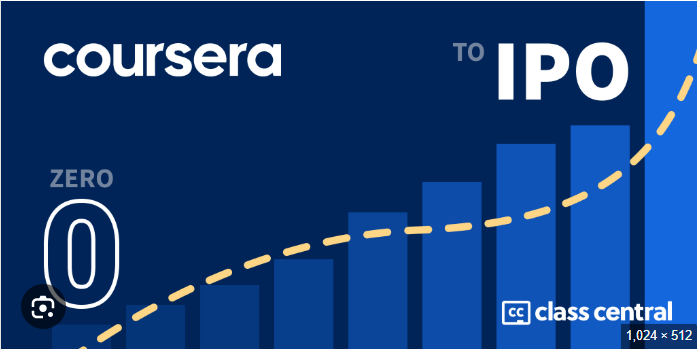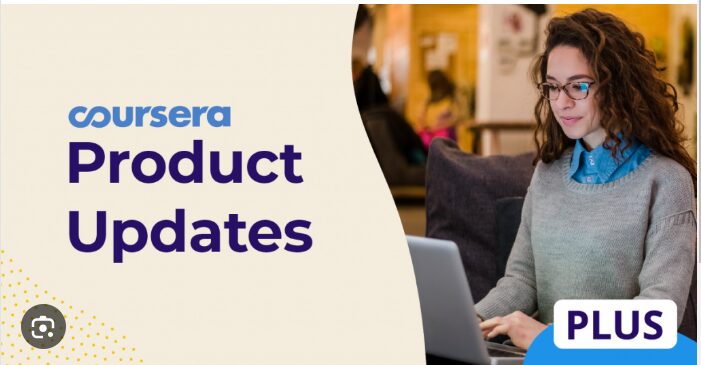Introduction to Coursera and online learning
Coursera has revolutionized the way we learn, offering a treasure trove of courses from top universities and institutions right at our fingertips. Whether you’re seeking to upskill for your career or explore a new passion, this platform opens doors to endless possibilities. But navigating through all that knowledge can be overwhelming. How do you make the most out of your online learning experience?
With thousands of courses available, it’s essential to approach your studies with intention and strategy. Understanding how you learn best is key, as is mastering time management in this flexible environment. Let’s dive into effective study techniques that will not only help you succeed on Coursera but also enrich your overall learning journey!
In today’s fast-paced world, the traditional classroom is evolving. Enter Coursera, a platform that has revolutionized online learning. With courses from top universities and industry leaders, it opens doors to knowledge like never before. Whether you’re looking to advance your career or simply satisfy your curiosity, Coursera offers something for everyone.
But how do you make the most of this incredible resource? Learning online can be both exciting and overwhelming. The key lies in adopting effective study strategies tailored to the unique environment of digital education. If you’re ready to dive into a world of knowledge and skills, let’s explore some powerful techniques that can help maximize your learning experience on Coursera!
Identifying your learning style for effective studying on Coursera
Understanding your learning style can significantly enhance your experience on Coursera. Are you a visual learner who thrives on diagrams and videos? If so, prioritize courses that feature engaging visuals and infographics.
Perhaps you’re an auditory learner. In this case, listening to lectures or podcasts might help reinforce the material better than reading text alone. Look for courses with rich audio content to keep you engaged.
Kinesthetic learners benefit from hands-on activities. Seek out projects or simulations within the course that allow you to practice what you’ve learned in real-time.
Taking time to identify how you learn best will shape your approach to studying effectively on Coursera. Tailoring your study methods not only boosts comprehension but also makes learning enjoyable. Embrace the journey of discovering what works for you!
Understanding your learning style can significantly enhance your experience on Coursera. Whether you’re a visual learner, an auditory learner, or a kinesthetic one, recognizing how you absorb information best is crucial.
Visual learners thrive on diagrams and videos. If this sounds like you, look for courses that utilize rich visuals and infographics. Take notes using mind maps or sketches to reinforce what you’ve learned.
Auditory learners benefit from listening and discussing. Engage with course materials through podcasts or recorded lectures. Don’t hesitate to join discussion forums where you can share ideas and ask questions.
Kinesthetic learners prefer hands-on experiences. Look for courses offering practical assignments that allow you to apply concepts in real-time scenarios. Pairing study sessions with physical activities might help solidify the knowledge too.
Experiment with different techniques until you find what resonates most with you. Use these insights to shape your study habits on Coursera. Tailoring your approach not only improves retention but also makes the learning process more enjoyable and effective.

Time management tips for completing courses on Coursera
Effective time management is essential for success on Coursera. Start by setting specific goals for each week. Break down the course material into manageable chunks and schedule dedicated study sessions.
Use a calendar or planner to block out these times. Treat your study sessions like important appointments that you cannot miss.
Avoid multitasking during your learning hours. Focusing solely on one subject will enhance your retention of information and understanding of concepts.
Set deadlines for yourself, even if the course doesn’t require them. This can motivate you to stay on track and progress consistently through the material.
Be flexible with your schedule but disciplined in execution. If life gets busy, adjust your plans rather than abandoning them entirely. Consistency is key; small daily efforts lead to significant accomplishments over time.
Time management is crucial for success on Coursera. With many courses available, it can be easy to feel overwhelmed. Implementing a structured approach will help you stay focused and productive.
Start by creating a study schedule. Determine how much time you can dedicate each week to your coursework. Break down the course material into manageable chunks, setting specific goals for what you want to accomplish during each session.
Use digital tools like calendars or task managers to keep yourself organized. Set reminders for assignment due dates and exam schedules so that nothing sneaks up on you unexpectedly.
Prioritize your tasks based on deadlines and difficulty levels. Tackle more challenging topics when you’re most alert and engaged, typically earlier in the day for many people. This way, you’ll retain information better and avoid last-minute cramming.
Consider using techniques such as the Pomodoro Technique—study intensely for 25 minutes followed by a 5-minute break—to maintain focus without burnout. Short breaks can refresh your mind and improve retention rates.
Don’t forget to assess your progress regularly. Reflect on what methods work best for you regarding time management and adjust accordingly if something isn’t effective.
By managing your time wisely, you’ll enhance not just your learning experience but also enjoy the journey of gaining new knowledge through Coursera’s vast offerings.
Utilizing course resources and tools for a better learning experience
Coursera offers a wealth of resources designed to enhance your learning journey. Take advantage of video lectures, quizzes, and peer-reviewed assignments. These tools can deepen your understanding and keep you engaged.
Don’t overlook the discussion forums. They provide a space to connect with fellow learners. Sharing insights or asking questions can lead to richer discussions and new perspectives on course content.
Many courses also include supplementary materials like articles, case studies, and podcasts. Explore these resources; they often reinforce what you’ve learned in class while providing real-world applications.
Utilizing mobile apps is another smart way to stay connected with coursework on the go. Whether commuting or taking a break at work, you can watch videos or complete readings anytime.
Consider setting up reminders for deadlines using calendars or task management tools available online. Keeping track helps maintain momentum throughout your study plan without slipping behind.
Strategies for retaining information and applying it in real-life situations
Retaining information can be challenging, especially with the vast amount of content on Coursera. One effective strategy is to practice active recall. After watching a lecture, pause and try to summarize what you’ve learned without looking at your notes.
Another useful technique is spaced repetition. Revisiting material after increasing intervals helps embed knowledge in your long-term memory. Create flashcards for key concepts or use apps that facilitate this learning method.
Incorporating real-life applications strengthens retention as well. Try to relate course topics to current events or personal experiences. Discussing what you’ve learned with peers also enhances understanding and aids memory.
Teaching others solidifies your grasp on the subject matter. Sharing insights boosts confidence while reinforcing knowledge through discussion and explanation. Embrace these strategies to ensure you not only remember but also effectively apply what you learn in everyday situations
Retaining information and applying it effectively can be a game changer in your learning journey. One approach is to engage actively with the material. Instead of passively watching videos or reading texts, consider taking notes in your own words. This helps reinforce concepts and makes them easier to recall later.
Another effective strategy is to use spaced repetition. Review key points several times over increasing intervals. This technique strengthens memory retention and ensures that what you learn sticks with you long-term.
To deepen your understanding, try teaching the content to someone else or discussing it in study groups online. Explaining complex ideas out loud not only solidifies your grasp but also uncovers any gaps in knowledge that need addressing.
Applying new skills in real-life situations enhances both comprehension and confidence. Whether it’s coding a small project, creating marketing strategies based on course insights, or simply experimenting with data analysis techniques at work, practical application transforms theoretical knowledge into tangible experience.
Remember, integrating what you’ve learned into daily routines keeps information fresh and relevant. The more you connect academic insights with real-world scenarios, the stronger your ability will become to leverage those insights for success—both personally and professionally. Embrace these strategies as part of your ongoing quest for knowledge on Coursera; they may just transform how you learn forever.

Conclusion: Continuously improving your skills through Coursera
Coursera offers a unique platform that empowers learners to explore new skills and deepen their knowledge. By continuously engaging with the courses available, you can keep up with industry trends and enhance your professional portfolio.
Embracing lifelong learning is key in today’s fast-paced world. Coursera provides an array of resources that cater to various subjects, making it easier for you to find what resonates most with your interests and career goals. As you unlock each course’s potential, remember that practice makes perfect.
The more effort you put into your learning experience—whether through interactive assignments or community discussions—the greater the benefit you’ll reap in real-life applications of your newfound knowledge. The path to mastery is ongoing, so take advantage of every opportunity Coursera presents.
Stay curious, remain committed to personal growth, and enjoy the journey ahead as you broaden your expertise through this dynamic online learning environment
As you navigate the world of online learning through Coursera, remember that skill development is an ongoing journey. Every course you complete opens new doors and enhances your expertise. Embrace the flexibility that online education offers; it allows you to tailor your learning experience to fit your unique schedule and goals.
Stay committed to applying what you’ve learned in real-life scenarios. This will not only reinforce your knowledge but also increase its relevance in both personal and professional contexts. Consider joining study groups or forums within the platform for additional support and motivation.
Continuously seek out new courses aligned with your interests and career aspirations. The beauty of Coursera lies in its vast array of subjects, from technical skills to creative pursuits. Keep pushing yourself beyond comfort zones, as this fosters growth.
By employing effective study strategies, managing time wisely, utilizing resources efficiently, and actively engaging with content, you’re setting yourself up for success on this educational adventure. Your dedication today lays a strong foundation for tomorrow’s accomplishments in whatever path you choose to pursue next.
















